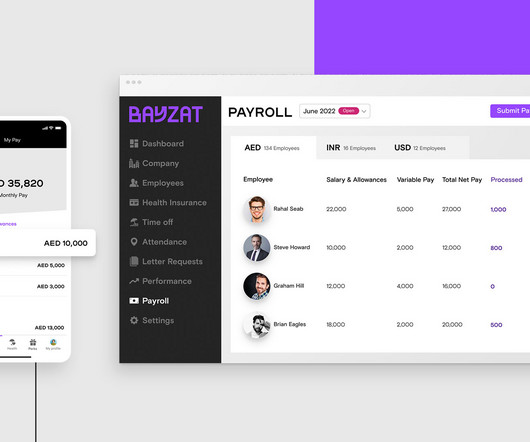A Guide to Payroll Management: Ensuring Smooth Financial Operations
Qandle
NOVEMBER 27, 2023
Effective payroll management involves several key components. First and foremost, it requires a thorough understanding of applicable laws and regulations related to wages, taxes, and deductions. A well-structured payroll system also includes accurate record-keeping. The payroll process involves several key steps.


















Let's personalize your content